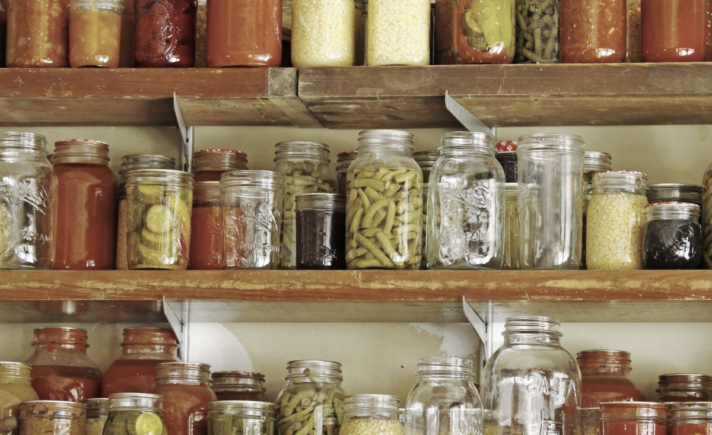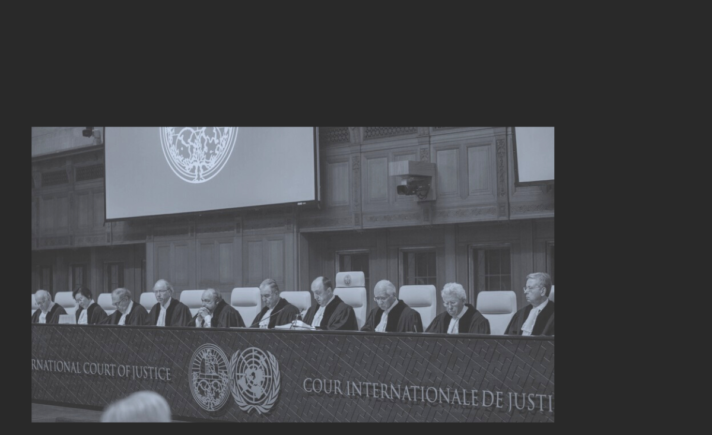On social media, particularly Instagram, influencers often showcase Damascus as a lively city, filled with bustling restaurants and markets, seemingly in spite of the ongoing war. While it’s true that cafes in areas like Maliki and Abu Rummaneh are crowded, where a dinner for two can cost at least half a million Syrian pounds, this portrayal overlooks the other side of the city’s reality. Basic essentials such as clothes and heating have become expensive luxuries, while passports have become impossible for most to obtain, safeguarded in a dysfunctional bureaucratic maze.
Constant apprehension
Living in Damascus is characterized by a pervasive sense of fear. This fear encompasses not just the war, but also the uncertainty of rising prices, material shortages, and seasonal concerns such as the start of school, Ramadan, holidays, and now, the approach of winter. Syrians live with multiple levels of fear, often voicing the sentiment, “No one knows what might happen.” This reflects the ever-present threat of more deaths, potential displacement, and the possibility of the war escalating.
For years, the economic downturn and increased power rationing (sometimes up to twenty hours a day) have given rise to “by-the-bite sales”, which cater to customers’ immediate needs, selling just enough cheese, meat, or other perishable items for a single meal. One vegetable vendor shared with Aljumhuriya.net, “Customers sometimes buy just a single banana because that’s all they can afford.” These instances of customers purchasing single pieces of fruit are not directly linked to the war in Gaza or the broader regional conflict, but are rather a consequence of the regime’s failed economic policies and the internal conflict.
Despite some recent gains, the Syrian pound’s value dropped again recently, highlighting the extreme vulnerability of the Syrian economy to any regional or global changes. This fluctuation underscores the precariousness of life in Damascus, far from the idyllic scenes often portrayed on social media.
This sense of unease has persisted for years. The Syrian pound’s recent plunge happened three months before the Gaza conflict, dropping to about 15,000 pounds per US dollar. Though it has somewhat recovered (currently around 14,400 against the dollar), this improvement hasn’t positively impacted living conditions. The overall trend of inflation and diminishing purchasing power continues to rise.
Structured price hikes
In mid-August, Bashar al-Assad issued a decree to raise the salaries and pensions of civilian and military employees by 100 percent. This increase set the maximum monthly salary for top-tier employees at 312,000 Syrian pounds. Concurrently, the Ministry of Internal Trade and Consumer Protection announced new prices for diesel, gasoline, and fuel, effectively doubling them. The price of subsidized gasoline, for instance, jumped to 8,000 Syrian pounds from 2,000. This price hike meant that, instantly, employees’ salaries lost about half their purchasing power relative to gasoline.
Following this, prices in various service sectors began to soar. Starting with water, the increase affected those deemed to have “above reasonable” consumption, as reported by the semi-official newspaper Al-Watan. The paper defined reasonable daily water usage for a family as 125-150 liters. This is particularly noteworthy considering that the United Nations General Assembly recognizes the human right to sufficient water for personal and domestic use, which it quantifies as 50-100 liters per person per day.
The Ministry of Water Resources then approved a sharp increase in electricity rates. The Ministry of Higher Education followed suit, raising fees for undergraduate and postgraduate studies, including significant hikes for parallel education and university housing. In turn, the spike in fuel costs impacted transportation, food supplies, cement, and other goods. The latest to join this trend was the Telecommunications and Postal Regulatory Authority, which announced a 25-35% increase in the basic tariff for mobile services and a 30% hike in fixed communication and internet services.
These developments followed the fading hopes tied to the potential normalization of Arab relations with the Assad regime. After months of promises to improve living conditions and stabilize the Syrian pound against foreign currencies, the Central Bank ultimately conceded its failure. It raised the official exchange rate to 11,500 pounds. Moreover, the Ministry of Internal Trade and Consumer Protection declared it would update the price bulletin for petroleum products every two weeks, signaling the government’s struggle to steer the economy effectively.
How the essential became “luxury”
Most Syrians view government promises with skepticism, often feeling apprehension rather than hope for improved living conditions. Each economic decision seems to push another essential item from the realm of necessity to luxury, leaving the basics to just food, drink, and, at best, medicine.
Umm Muhammad, for instance, had to forgo all her personal needs, including medical care. She endures a pain she self-diagnosed as a herniated disc, treating it with whatever painkillers she can find. Her priority is to save every penny for a better future for her children, even though this year she had to cut back on winter clothing for them.
Her husband disappeared in 2014, leaving her with five children, the youngest then an infant. In the first year, she used up her savings. By the second year, she began selling her wedding jewelry piece by piece. She’s worked various jobs, now earning a monthly wage of half a million liras (about $36 on the parallel market). She shops for second-hand clothes and practices hand-me-downs among her children to save on clothing expenses. She told Aljumhuriya.net, “A jacket in the market costs a million, but I can barely afford half my salary on used clothes. Every penny I earn now goes to feeding my children. It pains me not to provide for them like I used to.”
For Bassel, the situation is even more challenging. He finds that most Syrians lead similar lives, with only their meals reflecting any differences. Earning ten times the salary of a government worker, he still struggles to afford non-consumable items. “When power cuts last over twenty hours, shouldn’t energy alternatives be essential, rather than a luxury?” he laments. “Even so, there’s no way I could afford solar panels on my salary.”
The cost of alternative energy solutions, primarily reliant on imports, fluctuates with the exchange rate. Even a basic solar power system, enough for a fridge and lighting, costs between $1,500 and $2,200. Bassel points out that everything is tied to the exchange rate, diminishing his salary’s value each month. “I try to remind myself daily of life’s basic needs, so as not to see a simple dinner as a luxury.”
For many, each day brings greater economic hardship than the last. Those who could afford diesel for heating last year might find themselves unable to pay for it this year, with prices having doubled. A broader regional war would only exacerbate these dire conditions.
Heating is now a significant financial burden, requiring a substantial budget unless, like many Syrians, people resort to burning leftover clothes, shoes, and wood. The cost of a heater alone is between one and one and a half million Syrian pounds, not to mention the millions needed for diesel fuel, firewood, or other combustible alternatives.
The Ministry of Internal Trade distributes diesel through a smart card system, with each family allotted fifty liters at a subsidized rate (2,000 Syrian pounds per liter) and another fifty at the market rate (11,985 Syrian pounds per liter). These prices are subject to change daily. According to a report by Al-Watan newspaper, half of the families won’t receive their quota before winter’s end.
Weather forecasts predicted a harsh winter following severe summer heatwaves. Meanwhile, the government warns of a looming collapse more daunting than the winter cold. Its latest effort to mitigate this crisis was forming a committee of assistant ministers from various departments. This committee is tasked with studying the pricing mechanisms of goods and their actual costs, and providing periodic reports on how these policies affect material availability and pricing. Yet, the question remains: affordable for whom? For instance, the Ministry of Supply’s recent price bulletin listed a kilo of shawarma at 100,000 Syrian pounds. With this pricing, a top-tier Syrian employee’s salary equates to just three kilograms of shawarma, with a mere dollar to spare.
The fact that eight ministries were needed to address the price of three kilograms of chicken shawarma highlights the critical state of the Syrian economy.
Continued passport crisis
For those wishing to leave the country, the situation is no less challenging. The Syrian passport crisis has persisted for two consecutive years, with various excuses being offered for the delays. Initially, the spread of the Coronavirus was cited as a reason. Later, the sanctions imposed on the Syrian regime were blamed. Most recently, Interior Minister Muhammad al-Rahmoun vaguely attributed the delay to “technical reasons beyond the ministry’s control.”
Against the growing difficulties in obtaining a passport, passport brokerage services have expanded. Advertisements like “Special discount for families,” “Passports at production cost,” and “Discounts on passports” have been popping up on Syrian Facebook pages for months. While brokerage in the Syrian government services sector is not new, its visibility and prevalence on social media is a recent development, and it is becoming increasingly common, offered by various businesses and offices in areas controlled by the regime.
In July 2022, the Syrian Ministry of Interior, in collaboration with the Ministry of Communications and Technology, launched an electronic platform for issuing and renewing passports. In August of the same year, the Immigration and Passports Department within the Ministry of Interior mandated that all passport applications within the country be submitted exclusively through the electronic platform.
The fees for issuing or renewing a passport inside Syria are 70,660 Syrian pounds for a “regular” passport (equivalent to about $5.1 on the black market), 99,860 Syrian pounds for an “urgent” passport (about $7.20), and 1,009,970 Syrian pounds (approximately $73.70) for an “immediate” passport. In reality, the waiting periods are significantly longer than anticipated. It can take up to a year and a half to receive a regular passport and about a week or more for an immediate one.
Brokerage market for passports
We talked to Firas, who registered on the passport service site two months ago. He filled in his personal information and reached the appointment booking page. Most times, the site would display the message: “The immediate passport reservation service is not currently available.” He observed that during September, the site consistently opened for registration from Saturday to Wednesday at midnight, and occasionally in the afternoon between 4 and 7pm. However, securing a spot was still uncertain. Usually, within an hour of attempting to book, the site would stop accepting new requests, displaying the message: “Try again tomorrow.”
Majed Murtada, the Director of the Citizen Service Technology Directorate, announced that instant passport bookings were available 24/7 on the platform. However, during our attempts to register at various times for this report, we found it impossible.
Hamza, in contrast to Firas, opted for a quicker solution due to time constraints related to compulsory service. He contacted a broker recommended by a university colleague via WhatsApp. Their conversation started with verifying mutual connections for safety and concluded within a day.
They agreed on a fee of one million Syrian pounds at midnight. “That’s a great deal,” Hamza said, “My uncle paid five million for his passport last week.” This fee was just to book an appointment on the platform, and the cost varies depending on the broker’s connections and location. For instance, stationery shops and mobile phone stores in Jaramana offer booking services for up to five million pounds, a rate also seen in Hasakah and Homs provinces.
Brokers use two methods: hacking the platform (a feat not too challenging for Syrian regime websites, evidenced by last April’s breach of the Ministry of Defense’s Telegram account) and leveraging connections within the immigration and passport branches. This second method involves opening booking slots at unusual times or manipulating the platform.
The broker Hamza worked with used this latter method. Through his connections, he facilitated the process after booking an appointment. Despite paying an extra million Syrian pounds, Hamza still had a surprise at the Immigration and Passports Branch in the Damascus countryside. He expected to collect his printed passport, but instead, he had to queue for three hours to fill out a form with the same details he uploaded online, and then pay 10,000 Syrian pounds for an English translation of his name.
After all this, he still had to wait three days to get the passport. So, realistically, obtaining an immediate passport takes two or three days after platform booking, plus another three days for processing.
Hamza told Aljumhuriya.net, “The branch staff seem resistant to change and the use of technology, which isn’t surprising given there are only two computers at the Damascus countryside branch. Even the platform booking isn’t automated; employees ask for a printed reservation message and then look up the name on printed lists. So, in reality, the platform is practically useless.”
Further complication and indignity
Many, like Hamza, thought using the platform and a broker would avoid interactions with security personnel at immigration and passport branches, but the reality is different. On a recent visit to one of these branches, I observed dozens of women lined up to request passports for themselves, their husbands abroad, and their children. The counter staff would inquire, “How did you book on the platform?” with everyone denying any bribes or use of brokers. The officers intermittently scrutinized the men and women in line, with one officer mockingly commenting on the appearance and attire of the roughly 150 people in two rooms, as well as the women who brought their children, whose noise was a disturbance.
The Citizen Service Technology Directorate denies any hacking or overloading of the platform and asserts that 95% of brokerage offices have ceased operations. They claim these offices are being pursued, but a quick five-minute Facebook search reveals dozens of brokers in regime-controlled areas. Ironically, as we were concluding our report, we reconnected with Firas, who informed us that a relative had opened an office for issuing passports, promising to help him “get a passport at production cost.”





